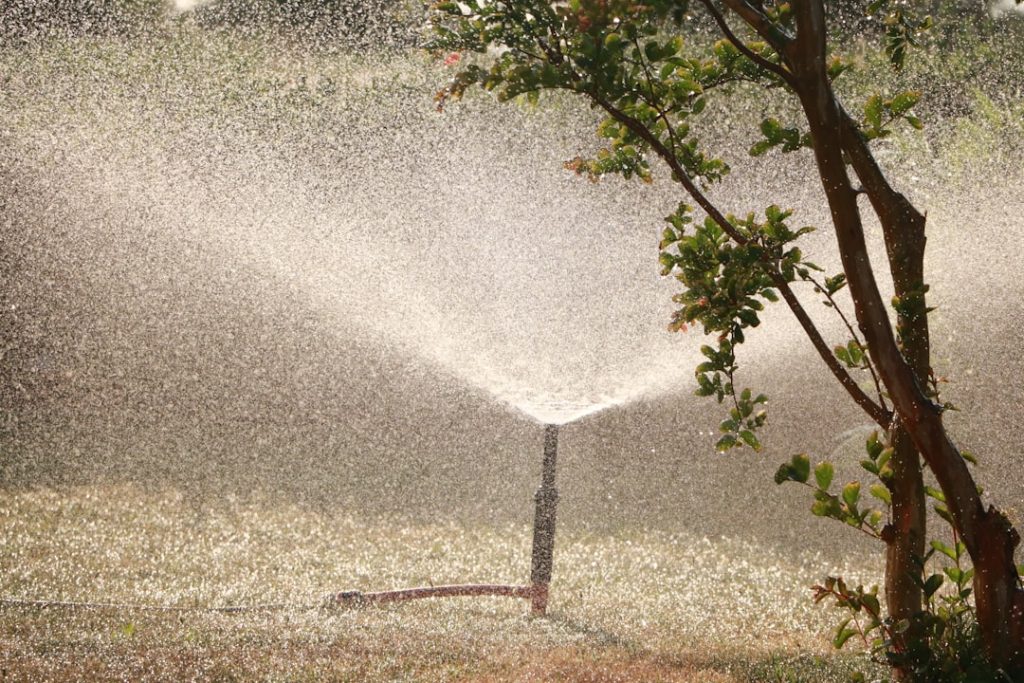Possums are nocturnal marsupials that exhibit omnivorous feeding habits, consuming a diverse diet including fruits, vegetables, insects, small animals, and human food waste. Their scavenging behavior often leads them to explore trash receptacles and compost areas. Possums are adept climbers, capable of scaling various structures to access food sources.
When threatened, they may exhibit thanatosis, a defensive mechanism commonly referred to as “playing dead.”
While generally non-aggressive, possums may defend themselves if cornered. They can potentially transmit diseases such as leptospirosis and salmonella through their excrement. Understanding possum behavior is essential for implementing effective deterrent strategies and protecting domestic animals, including chickens.
Possums are highly adaptable creatures, thriving in both urban and rural environments. Their opportunistic feeding habits and ability to exploit various food sources contribute to their widespread presence. Developing a comprehensive understanding of possum behavior is crucial for creating effective methods to exclude them from residential areas and protect livestock enclosures.
Table of Contents
- 1 Implementing Physical Barriers
- 2 Utilizing Repellents
- 3 Securing Chicken Feed and Waste
- 4 Creating a Safe Chicken Coop
- 5 Removing Attractants from the Yard
- 6 Seeking Professional Help
- 7 FAQs
- 7.1 What are possums and why are they a threat to chickens?
- 7.2 What are some effective ways to keep possums away from my chickens?
- 7.3 Are there any natural deterrents that can help keep possums away from chickens?
- 7.4 Is it legal to trap or kill possums to protect my chickens?
- 7.5 What should I do if I encounter a possum near my chicken coop?
Key Takeaways
- Possums are nocturnal and omnivorous, often seeking out food sources in the evening and during the night.
- Physical barriers such as wire mesh fencing and netting can be effective in keeping possums out of chicken coops and yards.
- Repellents such as ammonia-soaked rags or predator urine can deter possums from entering chicken coops and yards.
- Secure chicken feed and waste in sealed containers to prevent possums from being attracted to the area.
- Create a safe chicken coop by ensuring it is well-ventilated, secure, and free from any potential entry points for possums.
- Remove attractants such as fallen fruits, pet food, and garbage from the yard to discourage possums from frequenting the area.
- If possum infestation persists, seek professional help from pest control experts to effectively address the issue.
Implementing Physical Barriers
Installing a Sturdy Fence
One of the most effective ways to keep possums away from your chicken coop is by implementing physical barriers. This can include installing a sturdy fence around the perimeter of your property to prevent possums from gaining access. Make sure the fence is at least 4 feet high and extends underground to prevent possums from digging underneath it.
Adding Extra Layers of Protection
You can also add a layer of wire mesh or electric fencing to make it even more difficult for possums to climb over or dig under the fence. Another physical barrier you can implement is securing the chicken coop itself. Make sure the coop is made of sturdy materials and has no gaps or openings that possums can squeeze through.
Securing the Chicken Coop
You can also add a predator apron around the base of the coop, which is a wire mesh that extends outward to prevent digging predators like possums from gaining access. Implementing physical barriers is an effective way to keep possums away from your chicken coop and protect your flock from potential harm.
Creating a Secure Perimeter
By creating a secure perimeter and fortifying the chicken coop, you can significantly reduce the risk of possums gaining access to your property.
Utilizing Repellents

In addition to physical barriers, you can also utilize repellents to keep possums away from your chicken coop. There are several natural and commercial repellents available that can help deter possums from your property. Natural repellents such as predator urine, ammonia-soaked rags, or garlic and chili pepper sprays can be effective in keeping possums at bay.
These repellents work by creating an unpleasant scent or taste that possums will want to avoid. Commercial repellents such as motion-activated sprinklers or ultrasonic devices can also be effective in deterring possums from your property. These devices work by emitting a sound or spray of water when they detect movement, which can startle and deter possums from approaching your chicken coop.
It’s important to regularly reapply natural repellents and maintain commercial devices to ensure they remain effective in deterring possums. Utilizing repellents in conjunction with physical barriers can provide an extra layer of protection for your chicken coop and help keep possums away from your property.
Securing Chicken Feed and Waste
Possums are attracted to food sources, so it’s important to secure your chicken feed and waste to prevent them from being lured onto your property. Store chicken feed in secure containers that possums cannot access, such as metal bins with tight-fitting lids. Make sure to clean up any spilled feed promptly and avoid leaving food out overnight, as this can attract possums and other pests.
In addition to securing chicken feed, it’s important to manage chicken waste properly. Clean the chicken coop regularly and dispose of waste in a sealed compost bin or garbage can. Avoid leaving waste piles exposed, as this can attract possums and other scavengers to your property.
By securing chicken feed and waste, you can reduce the likelihood of possums being attracted to your property and protect your chickens from potential harm. Proper food and waste management are essential in keeping possums away from your chicken coop and maintaining a healthy environment for your flock.
Creating a Safe Chicken Coop
Creating a safe and secure chicken coop is essential in protecting your flock from possums and other predators. Make sure the coop is made of sturdy materials and has no gaps or openings that possums can squeeze through. Install locks or latches on doors and windows to prevent possums from gaining access to the coop.
You can also add predator-proofing measures such as hardware cloth over windows and vents, as well as predator aprons around the base of the coop to prevent digging predators like possums from gaining access. Regularly inspect the coop for any signs of damage or wear and tear, and make repairs as needed to ensure it remains secure. Creating a safe chicken coop is crucial in keeping possums away from your flock and providing them with a secure environment.
By fortifying the coop and implementing predator-proofing measures, you can significantly reduce the risk of possums gaining access to your chickens.
Removing Attractants from the Yard

Secure Your Yard’s Edibles
In addition to securing food sources and the chicken coop, it’s important to remove other attractants from your yard that may lure possums onto your property. This can include removing fallen fruits and vegetables from the ground, as well as cleaning up any spilled birdseed or pet food.
Maintain a Tidy Yard
It’s also important to maintain a tidy yard by trimming overgrown vegetation and removing clutter that may provide hiding spots for possums. By removing attractants from your yard, you can reduce the likelihood of possums being drawn onto your property and protect your chickens from potential harm.
Regular Yard Inspections
Regularly inspect your yard for any potential attractants and take steps to remove them promptly. This will help keep your yard free from possum attractants and ensure a safe environment for your chickens.
Create a Possum-Repellent Environment
By maintaining a clean and tidy yard, you can help keep possums away from your property and create a less appealing environment for them.
Seeking Professional Help
If you’re struggling to keep possums away from your chicken coop despite implementing various deterrent methods, it may be time to seek professional help. A wildlife removal expert can assess your property and develop a customized plan to effectively deter possums and protect your chickens. Professional wildlife removal services may include trapping and relocating possums, as well as implementing long-term deterrent measures such as exclusion barriers or habitat modification.
By seeking professional help, you can ensure that the problem is addressed effectively and ethically, while also protecting your chickens from potential harm. In conclusion, understanding possum behavior is crucial in developing effective strategies to keep them away from your chicken coop and property. Implementing physical barriers, utilizing repellents, securing chicken feed and waste, creating a safe chicken coop, removing attractants from the yard, and seeking professional help are all important steps in deterring possums and protecting your flock.
By taking proactive measures to keep possums away from your property, you can create a safe and secure environment for your chickens while minimizing the risk of potential harm from these nocturnal scavengers.
If you’re looking for ways to keep possums away from your chickens, you may also be interested in learning about the importance of a secure coop for turkeys. Check out this article on Poultry Wizard to find out more about the housing needs of turkeys and how it can help protect them from predators like possums.
FAQs
What are possums and why are they a threat to chickens?
Possums are nocturnal marsupials that are known to prey on chickens and their eggs. They can pose a threat to the safety and well-being of chickens in a backyard or farm setting.
What are some effective ways to keep possums away from my chickens?
Some effective ways to keep possums away from chickens include securing the chicken coop with strong wire mesh, installing motion-activated lights or sprinklers, using predator deterrents such as predator urine or noise devices, and keeping the surrounding area clean and free of food sources.
Are there any natural deterrents that can help keep possums away from chickens?
Yes, there are natural deterrents that can help keep possums away from chickens. These include planting strong-smelling plants such as lavender or mint around the coop, using garlic or chili pepper sprays, and keeping a guard animal such as a dog or cat near the coop.
Is it legal to trap or kill possums to protect my chickens?
Laws regarding the trapping or killing of possums vary by location, so it is important to check with local wildlife authorities before taking any action. In some areas, it may be legal to trap and relocate possums, while in others, a permit may be required to kill them.
What should I do if I encounter a possum near my chicken coop?
If you encounter a possum near your chicken coop, it is best to avoid direct confrontation and instead focus on securing the coop and deterring the possum from returning. If the possum becomes a persistent problem, consider contacting a wildlife professional for assistance.
Meet Walter, the feathered-friend fanatic of Florida! Nestled in the sunshine state, Walter struts through life with his feathered companions, clucking his way to happiness. With a coop that’s fancier than a five-star hotel, he’s the Don Juan of the chicken world. When he’s not teaching his hens to do the cha-cha, you’ll find him in a heated debate with his prized rooster, Sir Clucks-a-Lot. Walter’s poultry passion is no yolk; he’s the sunny-side-up guy you never knew you needed in your flock of friends!







